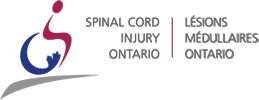Did You Know?
Safer walking spaces are critical to pedestrian road safety. When a motor vehicle accident occurs, pedestrians and cyclists are at a considerably higher risk of injury than are motorists. Approximately three quarters of these motor vehicle accidents involving pedestrians occur in urban areas. Significantly, the majority of fatalities from pedestrian-vehicle interactions are due to a pedestrian being hit at mid-block location while crossing the road. This is because motorists are not expecting pedestrians to cross at a mid-block location, and often cannot stop in time when they appear suddenly from in between parked cars.
It is important to realize though, that pedestrian road safety is not only the responsibility of individuals who use the road. The behaviors of pedestrians and motorists can also be influenced by the road design or layout, traffic laws, and the environment in which an accident may occur. It is up to both pedestrians and drivers to help keep Ontario’s roads safe as best we can.
In an effort to promote pedestrian road safety, the Government of Ontario has legislated that drivers can be fined anywhere from $150 to $500 and 3 demerit points if they commit a driving offence at crosswalks, school crossings and pedestrian crossings. These fines are doubled near designated Community Safety Zones, which includes public areas and schools.
Below some pedestrian road safety tips are listed for pedestrians and drivers alike in an effort to promote road safety.
Tips on Pedestrian Road Safety for Pedestrians:
- Wear bright clothing or reflective strips, especially when it is dark outside, to ensure you are visible to other drivers;
- Make eye contact with drivers before you cross the road to ensure that they see you;
- Cross the road at designated crosswalks or traffic lights;
- Never cross the road on a red light;
- Ensure you only start to cross the road once traffic has come to a complete stop; and
- Take care to watch for vehicles making turns at intersections, or turning into and leaving driveways.
Tips on Pedestrian Road Safety for Drivers:
- Take care to look out for pedestrians, especially while turning;
- Be patient with pedestrians who may require more time to cross the road, including individuals with disabilities or the elderly;
- Drive carefully through school zones or marked Community Safety Zones, paying special attention to children who may be playing or walking nearby; and
- Be ready in case a pedestrian makes a sudden and unexpected move.
The Government of Ontario has recently published some new pedestrian safety changes that can be found at http://www.mto.gov.on.ca/english/safety/pedestrian-safety.shtml
It is important that we stay informed and know how the laws are evolving to support initiatives at greater road safety. Let’s work together as motorists and pedestrians to ensure pedestrian road safety in our communities.







